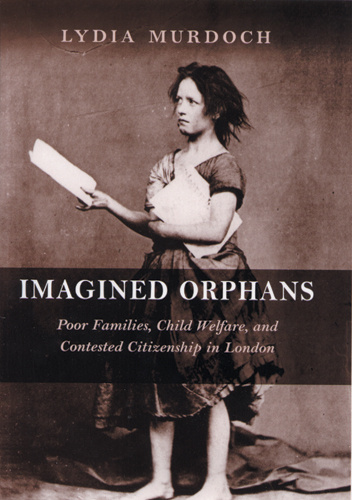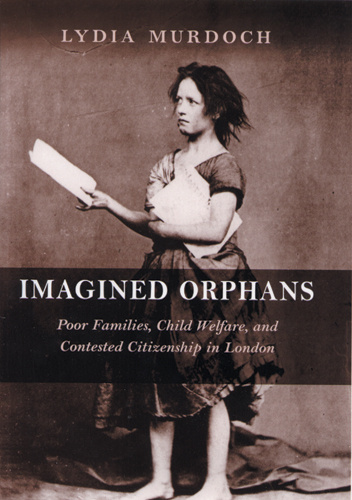
Imagined Orphans
Poor Families, Child Welfare, and Contested Citizenship in London
With his dirty, tattered clothes and hollowed-out face, Oliver Twist is the enduring symbol of the young indigent spilling out of orphanages and haunting the streets of late-nineteenth-century London. Although poor children were often portrayed as real-life Oliver Twists—either orphaned or abandoned by unworthy parents—they in fact frequently maintained contact and were eventually reunited with their families.
In Imagined Orphans, Lydia Murdoch focuses on this discrepancy between the representation and the reality of children’s experiences within welfare institutions—a discrepancy that she argues stems from conflicts over middle- and working-class notions of citizenship that arose in the 1870s and persisted until the First World War. Reformers’ efforts to depict poor children as either orphaned or endangered by abusive or “no-good” parents fed upon the poor’s increasing exclusion from the Victorian social body. Reformers used the public’s growing distrust and pitiless attitude toward poor adults to increase charity and state aid to the children.
With a critical eye to social issues of the period, Murdoch urges readers to reconsider the complex situations of families living in poverty. While reformers’ motivations seem well intentioned, she shows how their methods solidified the public’s antipoor sentiment and justified a minimalist welfare state that engendered a cycle of poverty. As they worked to fashion model citizens, reformers’ efforts to protect and care for children took on an increasingly imperial cast that would continue into the twentieth century.
Lydia Murdoch's engaging study complements scholarship on childcare and offers the first book-length scholarly treatment of institutional care provided by agencies such as Barnardo's.
Murdoch explores the ways in which melodramatic incitement of pity for allegedly orphaned children worked to demonize the poor in Victorian England. This insight flies in the face of much current scholarship. Written with refreshing clarity, this historical study will illuminate public policy discussions of child welfare and poverty even in the present day.
Imagined Oftens makes many useful connections among the developing starnds of Victorian social history. ... Murdoch's work could mark an important milestone in the history of official willingness to remove poor children from parents depicted as incapable of raising them properly, a policy that has been detected as early as the seventeenth century.
From barrack schools to family cottages: creating domestic space and civic identity for poor children
The parents of "nobody's children": family backgrounds and the causes of poverty
"That most delicate of all questions in an Englishman's mind": the rights of parents and their continued contact with institutionalized children
Training "Street Arabs" into British citizens: making artisans and members of empire
"Their charge and ours": changing notions of child welfare and citizenship




